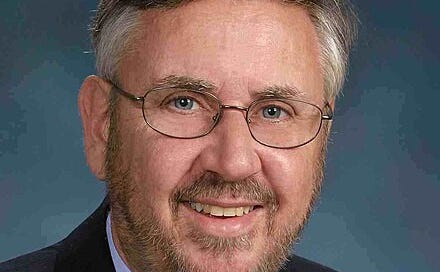Wetland & Nature-based Solutions
- Keep up-to-date with the latest wetland and Nature-based Solutions (NbS) news, research and jobs. If you’d like to receive regular updates, please subscribe to this newsletter.
⏰ World’s largely unprotected peatlands are ticking ‘carbon bomb’
Yet another report, highlighting how important peatlands are for storing carbon, hitting the headlines. Our peatlands contain more carbon than all the world's forests, but they are largely unprotected. Only 17% of peatlands are in protected areas, making them vulnerable to destruction from human activities. Protecting and restoring peatlands is essential for combating climate change and preventing further carbon emissions.
💦 ‘Even the sound of the water has changed’: can Bogotá bring its wetlands back from the brink?
Bogotá's wetlands, in Columbia, are crucial for wildlife, climate adaptation, and Indigenous culture, but they are severely damaged due to urban development and pollution. Recent extreme weather events, like droughts and floods, highlight the city's vulnerability and the urgent need for wetland restoration. Activists and local leaders are fighting to protect these ecosystems for future generations. A great article here on the subject.
🌱 Hedges capture more carbon than grassland
An interesting Nature-based Solutions story here, rather than a wetland one. Research from the University of Leeds, in the UK, shows that hedgerows store nearly 40 tonnes more carbon per hectare than grassland. This study highlights the benefits of hedgerows for soil health and biodiversity on farms. Maintaining and planting hedgerows can help farmers support carbon storage and the environment.
🌳 Beavers return to Northamptonshire for the first time in 400 years.
Beavers have been released at Nene Wetlands by Rushden Lakes in Northamptonshire, making them the first of the animals to officially be in the county for 400 years. Another great beaver story, and there’s also a smashing video of the moment of release too.
Professor Bill Mitsch
This week saw some sad news. One of the “founding fathers” of wetland science has died. William (Bill) Mitsch literally wrote the book on wetland science and was one of the most influential scientists and advocates for wetlands in the past 50 years.
I was lucky enough to know Bill. He was incredibly supportive of me in my career - we did research together, I hosted him when he visited Bangor University, and he championed me for various roles, including being one of my references when I was offered a professorship. Bill was a real character, and will be missed by everyone in the wetland science world.
🦆 Wetland lead shot ban
Shooting with lead shot in wetlands is banned in the EU (and Northern Ireland and Scotland). The government is now considering bringing in an outright ban across the UK. Some organisations, like Wildfowl and Wetlands Trust (WWT) are campaigning strongly for this.
Lead shot that ends up in the environment is harmful to wildlife and ecosystems. Some estimates suggest that lead poisoning kills up to 100,000 waterbirds every winter in the UK. It's also not brilliant for us if we eat game shot with it - though obviously fine if care is taken, and in moderation. There are alternative types of ammunition, and WWT, and other campaign groups, are not saying folk shouldn't shoot.
However, a recent video by WWT called The Toxic Restaurant has caused the charity to get a fair bit of hassle from the British Association for Shooting and Conservation (BASC), some of it aimed rather personally at WWT’s CEO, Sarah Fowler. WWT have responded, and personally I'm finding it tricky to understand why there is so much resistance to the proposed ban - but if you feel differently please share your thoughts with me.
I have huge respect for the conversation work the shooting community does and this seems like something we should all be working together on, for the benefit of the natural world we all want to protect.
💰 Wetland jobs
Get in-touch 📢
If you’d like to get in-touch please follow Prof Christian Dunn on Twitter/X (@christiandunn) or Instagram (@profchristiandunn), or email c.dunn@bangor.ac.uk.
If you have an image, news item, research item, or job you’d like to share in this newsletter, please get in-touch.




